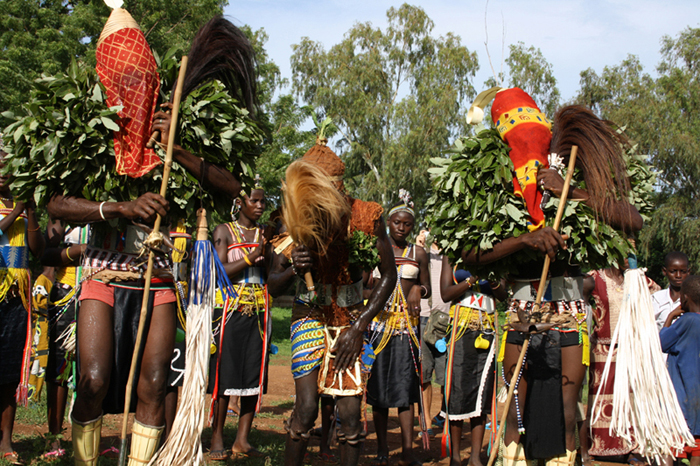Objectives
- Strengthen the protection of the site's tangible and intangible values;
- Promote these values by proposing that the Bassari region be inscribed on the World Heritage List;
- Coordinate the activities of the players involved in promoting the social and cultural values of the Pays Bassari by preparing a 2011-2015 Management Plan.

The area commonly referred to as "Pays Bassari" is a vast mountainous territory characterized by the beauty of its natural landscapes, but above all by the diversity of original cultures that societies have kept alive. The area selected by the Senegalese government for World Heritage nomination comprises three geographical areas covering a total of 503 km², each home to a distinct culture and linguistic group:
- the Bassari cultural landscape,
- the Bédik cultural landscape,
- the Peul cultural landscape.
The Bassari and Bédik had to create conditions that enabled them to live free from slavery and religious raids, and the landscape still bears witness to this historic resistance. The succession of powerful invaders has only exacerbated their fierce determination to be and choose their way of life. These societies are keen to preserve their heritage and, better than in many other regions of Senegal and Africa, have been able to resist influences that could have destabilized their unique social and political organization. Through an elaborate system of age classes, the Bédik and Bassari quickly forge a spirit of initiative and autonomy that makes them very strong, enabling them to fend for themselves in all circumstances.
To this astonishing culture of resistance is added a remarkable bond with nature. Every activity is a celebration of the nature that gives them life and protection. Here, man has not attempted to tame the elements in order to better exploit them, but has instead developed an environmental approach based on maximum understanding of nature. Plants and animals, like people, mountains and the elements, are inhabited by spirits that need to be respected if we ourselves are to be protected by nature. Any action taken on the environment is carefully considered and taken on board, and is the result of a subtle dialogue between the spirits of nature and those of mankind. Where resources are precious and rare, prohibitions guarantee their protection. This is the case for certain plants, many animals and honey, for example, which is forbidden to certain age groups. Through their way of life, the people of the Bassari region remind us that there are other ways of conceiving the relationship between man and nature.
It is to make these exceptional treasures known to the world that the State of Senegal wishes to inscribe the Pays Bassari on the World Heritage List.
CRAterre's mission was to support the Senegalese authorities in finalizing the nomination dossier for the Pays Bassari before the end of January 2011, and in developing a management plan for the site. In order to finalize both the nomination and the management plan, 3 expert missions totalling 35 working days in Senegal were organized by the MDG-Fund project led by the Senegalese Heritage Directorate.
All the work was carried out in close collaboration with Heritage Department staff, as well as with representatives of the 3 proposed cultural landscapes. In all, 52 people were involved in the workshops and the formulation of the documents submitted to UNESCO.
Results
- Management plan and nomination finalized and submitted to UNESCO in January 2011;
- Numerous product photos and texts;
- A shared vision for the site and a better understanding of each stakeholder's projects;
Partners
UNESCO's Regional Office in Dakar (BREDA), Spanish cooperation, which funded the United Nations MDG-F program "Promoting cultural initiatives and industries in Senegal: Bassari Country and Saloum Delta", the Cultural Heritage Department (DPC) in Dakar, the Bassari Country populations and their representatives (elected officials and associations).






























